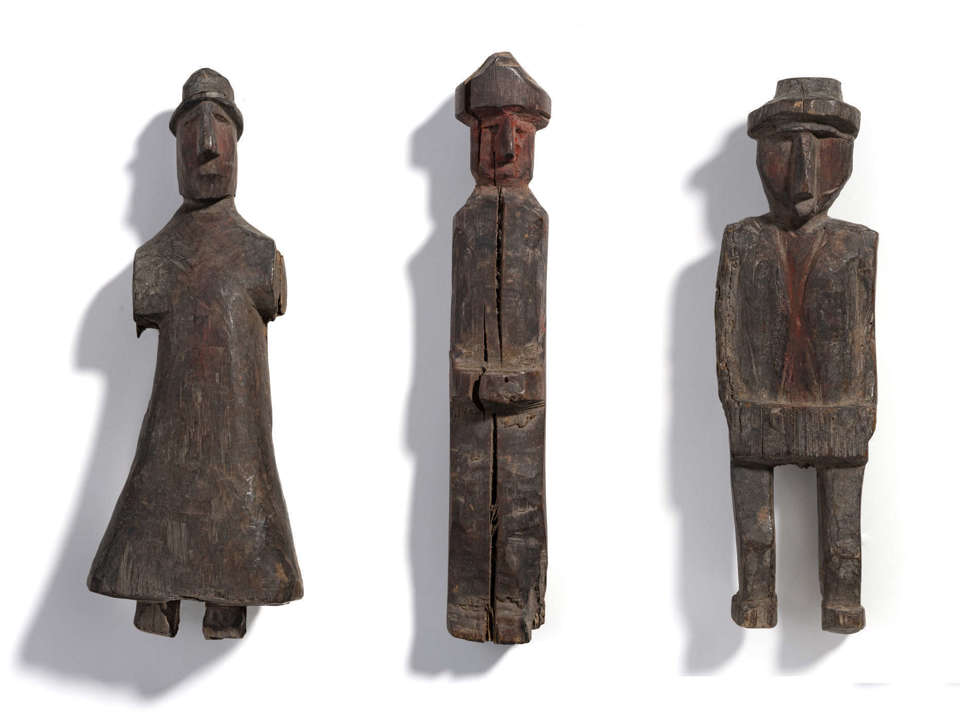Rehousing the World Ethnology Collection
On June 15, 2020, the National Endowment for the Humanities notified the Museum that it received $150,000 in a Coronavirus Aid, Relief, and Economic Security Act (CARES) grant. This grant partially offset the salaries of eleven Science Division staff members during the worst economic downturn since the Great Depression. Under the terms of the grant, we focused on inventorying, rehousing, photographing and researching the Museum’s World Ethnology Collection, which includes objects from Central and South America, Africa, and other parts of the world. It also includes a small but significant collection of paintings, prints, and sketches from ethnographic cultures around the world.
From July 1 through December 31, Department of Anthropology and Integrative Collections staff worked in the World Ethnology storage room, tucked away behind Ricketson Auditorium in the northwest corner of the Museum’s first floor. There, collections managers unwrapped and measured each object, created digital photographs of each, and noted any special attention that they might need. Once measured and photographed, the objects were transported to the Museum’s Avenir Collections Center in the Morgridge Family Exploration Center on the southside of the Museum. There, in a task that would ordinarily have been conducted by Museum volunteers, collections staff made custom storage mounts out of archive quality materials for each object, which then got placed in our wonderful preservation facility. The Museum photographer took beautiful images of the most important objects, and conservation assistants tackled problematic objects that needed more detailed attention to mend breaks, engage in specialize cleaning, and propose more extensive treatment options that will be conducted in the future.

Staff re-discovered an important collection of Kuba masks, including beautiful examples of three royal Kuba masks, known as mwaashmboy , ngaady a mwaash , and bwoom masks. Often interpreted as representing three siblings, these masks tell the Kuba kingdom’s creation in the central Democratic Republic of the Congo, and were usually performed during initiation ceremonies for young men. The mwaashmboy represents the son of the god who came to earth to start the kingdom; the ngaady a mwaash represents his sister (and wife), who is the epitome of femininity and motherhood. The lines curving down from the ngaady a mwaash eyes indicated she is crying tears of joy and pain that symbolize womanhood. Their brother, bwoom, creates conflict by trying to win his sister’s love and overthrow his brother. These three Kuba masks are beautifully decorative, excellent examples of Central African artistry.

These are nuchus – Balsa wood statues made by the Guna (Kuna) people of Panama, and are used for healing. They are infused with a special power by shamans to ward off evil spirits and sickness. Only broken nuchus can be bought or sold, and only after their spirit has been released by a shaman.
Made possible in part by the grant PB-295373-20 from the National Endowment for the Humanities: Coronavirus Aid, Relief, and Economic Security (CARES) Act.
Any views, findings, conclusions, or recommendations expressed in this Web resource do not necessarily represent those of the National Endowment for the Humanities.

